1 Answer
### 1. **Foundation of Modern Technology**
Electronics Engineering is the backbone of countless modern technologies. It involves the design, development, and application of electrical circuits, devices, and systems, which form the basis for everything from smartphones to sophisticated medical equipment. It plays a critical role in the development of:
- **Consumer Electronics**: Devices like smartphones, televisions, computers, and gaming consoles are all products of electronics engineering. Without it, the digital world we live in today wouldn’t exist.
- **Communication Systems**: Electronics engineers design communication systems like mobile networks, satellite communications, and the Internet. These are integral to global connectivity, making communication faster and more efficient.
- **Computers and Data Processing**: Electronics engineers are behind the development of computer hardware such as processors, memory, and storage devices, which are essential for everything from personal computing to cloud services.
### 2. **Driving Innovation in Industry and Infrastructure**
Electronics engineering is a cornerstone of industrial automation and the development of infrastructure. It contributes to the design of control systems, machinery, robotics, and manufacturing processes, making them smarter, more efficient, and reliable. Notable contributions include:
- **Automation and Robotics**: Robotics, powered by electronics engineering, is revolutionizing industries like manufacturing, medicine, and agriculture. Automated factories use robots designed by electronics engineers to perform repetitive tasks with greater precision and speed, improving productivity and reducing costs.
- **Smart Infrastructure**: Electronics engineering is key in the development of "smart" cities and infrastructure. From energy-efficient lighting systems to smart traffic control, electronics are being integrated into urban planning to create more sustainable and efficient environments.
- **Power Systems**: Electrical engineers design power generation, transmission, and distribution systems. They are crucial in advancing renewable energy systems, such as solar panels and wind turbines, making energy production more sustainable.
### 3. **Advancements in Health and Medicine**
Electronics engineering has brought remarkable innovations to healthcare, resulting in the development of diagnostic tools, life-saving devices, and treatments that have significantly improved the quality of life. Important contributions include:
- **Medical Devices**: Electronics engineers design medical equipment like pacemakers, MRI machines, CT scanners, and blood glucose monitors. These devices have revolutionized diagnosis and treatment, saving millions of lives.
- **Telemedicine**: Advances in electronic communication technologies have made remote healthcare services possible. Telemedicine allows doctors to provide care to patients regardless of their location, improving access to healthcare, especially in remote areas.
- **Wearable Health Technology**: Devices like fitness trackers and smartwatches that monitor health metrics such as heart rate, sleep patterns, and oxygen levels have become more common due to the work of electronics engineers. These tools help individuals manage their health proactively.
### 4. **Enabling Scientific Discovery**
Electronics engineers create tools and systems that are vital to scientific research and discovery. Their work has advanced fields such as physics, biology, and environmental science. Some examples include:
- **Particle Accelerators and Telescopes**: Electronic systems are used in particle accelerators, such as those at CERN, to explore the fundamental nature of matter. In astronomy, electronics are used in telescopes to observe distant galaxies and stars.
- **Environmental Monitoring**: Electronics engineers design sensors that monitor environmental conditions, from air quality to radiation levels. This data is essential for scientific research and policymaking, particularly in addressing climate change.
### 5. **Critical to National Security**
National security relies heavily on electronics for defense systems, communication networks, and surveillance. Electronics engineers contribute to:
- **Military Systems**: Electronics engineering is at the heart of developing technologies such as radar systems, missiles, and cybersecurity systems that protect nations from external threats.
- **Surveillance and Monitoring**: Systems for monitoring borders, detecting threats, and ensuring public safety are often designed and maintained by electronics engineers. This includes everything from facial recognition systems to drones.
### 6. **Promoting Sustainability**
Electronics engineering is essential in promoting environmental sustainability. Through innovations in energy-efficient technologies and renewable energy sources, electronics engineers are helping to reduce humanity’s carbon footprint:
- **Energy Efficiency**: Engineers design systems that optimize energy use in everything from household appliances to industrial plants, reducing waste and lowering energy costs.
- **Renewable Energy Technologies**: Electronics engineers are key to the development of solar panels, wind turbines, and energy storage systems, making it possible to transition to greener energy sources. They are instrumental in designing efficient power converters, inverters, and storage devices for renewable energy systems.
### 7. **Enhancing Education and Learning**
The role of electronics engineering extends to the education sector. Interactive technologies such as smartboards, virtual classrooms, and educational software depend on electronics engineering. The field makes education more engaging and accessible, enabling better learning experiences.
### 8. **Economic Growth and Job Creation**
The electronics sector is a significant contributor to global economies, creating jobs, boosting innovation, and fostering new industries. The demand for electronics engineers continues to grow as technology evolves. For example, fields like artificial intelligence, IoT (Internet of Things), and 5G networks are opening new career opportunities in electronics engineering.
### Conclusion
In summary, electronics engineering is not only crucial for technological innovation but also for improving the quality of life, ensuring global connectivity, and solving some of the most pressing issues of our time. It plays a pivotal role in advancing healthcare, communication, industrial automation, energy systems, and scientific exploration. As technology continues to advance, the importance of electronics engineering will only increase, shaping the future in ways we can only begin to imagine.

Applied Physics
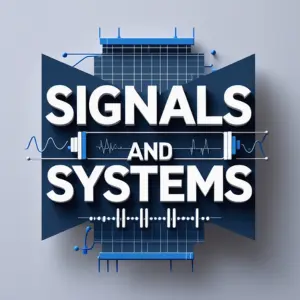
Signals and Systems

Digital Electronics
Basic Concepts
Basic Laws
Units

Ohmic Resistors
Capacitors and Inductors
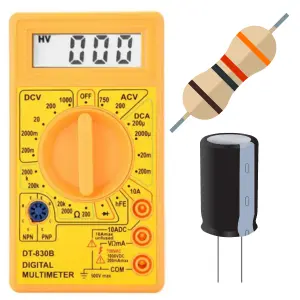
RC Circuit
First-Order Circuits
Second-Order Circuits
Principles Of Circuit Analysis
Sinusoids and Phasors
AC Steady-State Analysis
Single Phase A.C. Circuits
Three-Phase Circuits
Resonance In Series And Parallel Circuits
Network Theorems
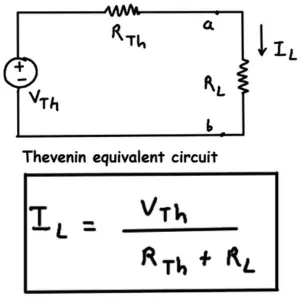
Thevenin's Theorem
Two-port Networks
Digital Electronics

Oscilloscope
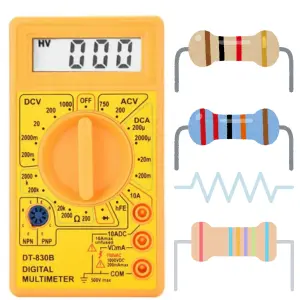
Ohmmeter
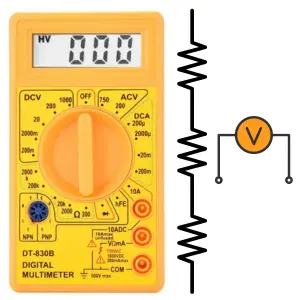
Voltmeter

Ammeter

Induction Motor

Transformer
Operational Amplifiers
Components
Symbols
Formulas
EE Notes
EE Dictionary

MCQ Quiz

Interview Q&A
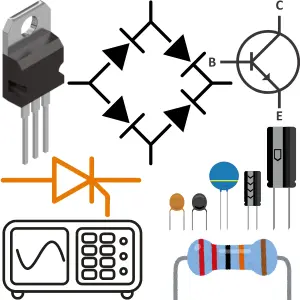
Power Electronics Book
Advanced Calculator

Basic Calculator

Simulator
Videos
Q&A

Capacitance Meter

Two Way Switch
Electrical Machines
Power Electronics

Electrical Drives & Their Control

Electrical Safety & Standards
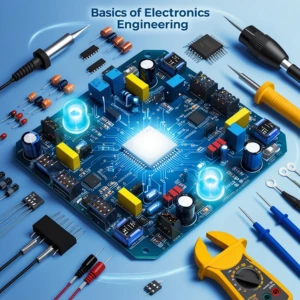
Basics of Electronics Engineering

Electromagnetic Fields

Electrical Machines

More Items Coming Soon...